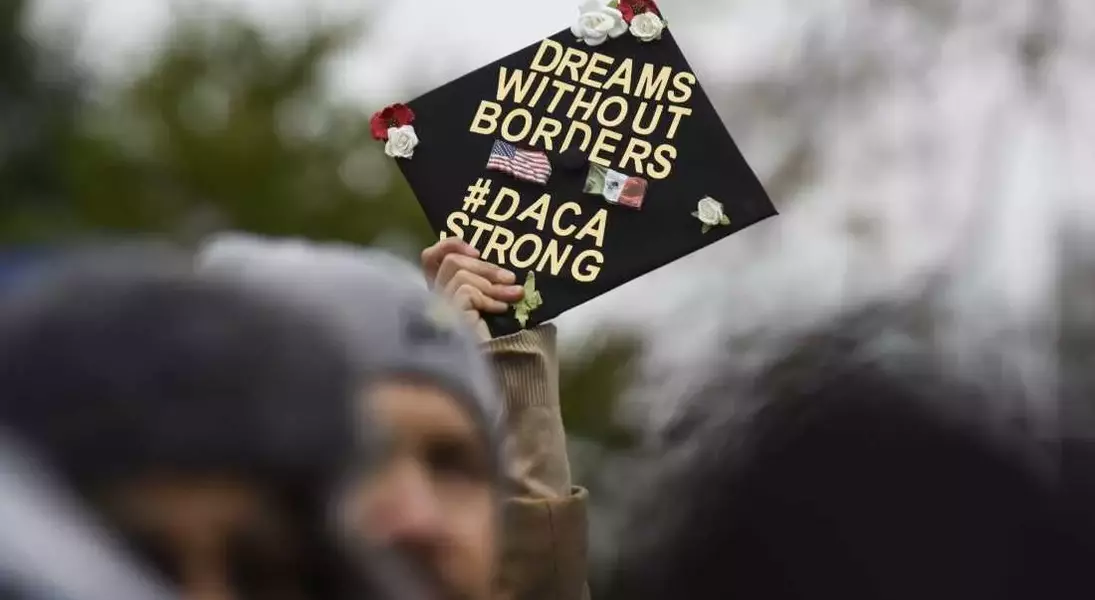
The landscape surrounding Deferred Action for Childhood Arrivals (DACA) is experiencing significant shifts, as the Department of Homeland Security (DHS) now openly encourages its beneficiaries to self-deport. This directive signals a marked change in immigration enforcement policy, creating heightened anxiety among the hundreds of thousands of individuals, commonly known as 'Dreamers,' who have long relied on DACA for temporary protection and work authorization. The evolving narrative from the administration underscores the precarious position of DACA, which, despite its initial intent to offer a semblance of stability, is increasingly being challenged and reinterpreted.
This latest pronouncement from DHS comes amidst a series of governmental actions that appear to incrementally dismantle the program's perceived safeguards. From limiting access to federal healthcare to scrutinizing educational financial aid, these measures reflect a concerted effort to narrow the scope of DACA's benefits. The implications are profound, as recipients face the daunting prospect of losing their livelihoods and being forcibly removed from the only country they have ever known, highlighting the urgent need for a durable legislative solution to their long-standing immigration predicament.
The Shifting Sands of DACA Policy
The Department of Homeland Security (DHS) has taken a new, assertive stance by recommending that individuals covered under the Deferred Action for Childhood Arrivals (DACA) program voluntarily depart the country. This advisement emerges against a backdrop of recent administrative maneuvers that aim to restrict the advantages afforded to DACA beneficiaries. These include steps taken by the Health and Human Services Department to preclude DACA recipients from participating in federal healthcare marketplaces and the Education Department's probes into universities offering financial assistance to these students. Such actions collectively signal a hardening approach towards DACA, challenging the very premise of its protective measures.
A spokesperson for DHS explicitly stated that DACA does not confer any form of lawful presence within the United States, suggesting that recipients are always susceptible to arrest and deportation, particularly if they have committed any offenses. This position contrasts sharply with earlier signals from political figures that implied a desire to safeguard DACA individuals. The inconsistency in messaging has fueled a sense of dread and instability within the DACA community, with advocates expressing concerns that the program's protections are systematically being eroded. The current administrative climate is characterized by an enforcement-first mentality, which, when applied to DACA, leaves many without clear pathways or assurances for their future residency.
Understanding DACA's Precarious Protections
DACA provides a temporary shield against deportation and grants work authorization, but it does not serve as a direct route to permanent residency or citizenship. The program necessitates renewal every two years, and while it can facilitate adjustments in immigration status under specific circumstances, its temporary nature has always been a point of vulnerability. Originally designed to offer reprieve to eligible individuals from immigration enforcement, the program historically aimed to remove them from the deportation pipeline. However, recent incidents, including arrests and detentions of DACA recipients, signal a departure from this foundational principle, indicating a more aggressive enforcement posture.
Legal experts and immigrant advocates contend that the notion of DACA offering no protection is misleading, as the program was intended to shield individuals from indiscriminate arrests and raids. While certain infractions can lead to the revocation of DACA status, the current administration's actions appear to go beyond these established parameters. The call for self-deportation and increased enforcement activities are intensifying fear among DACA recipients, who now face the grim reality of potential removal to countries they barely know. This creates a volatile situation, urging the need for more defined and stable immigration policies that address the humanitarian concerns of these individuals who have grown up in the U.S. and contribute significantly to its society.
